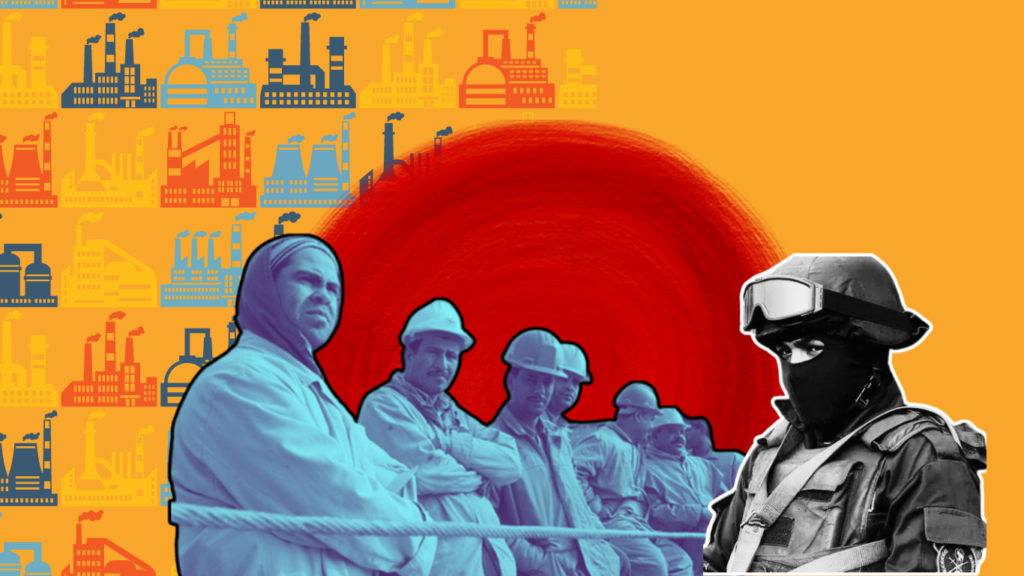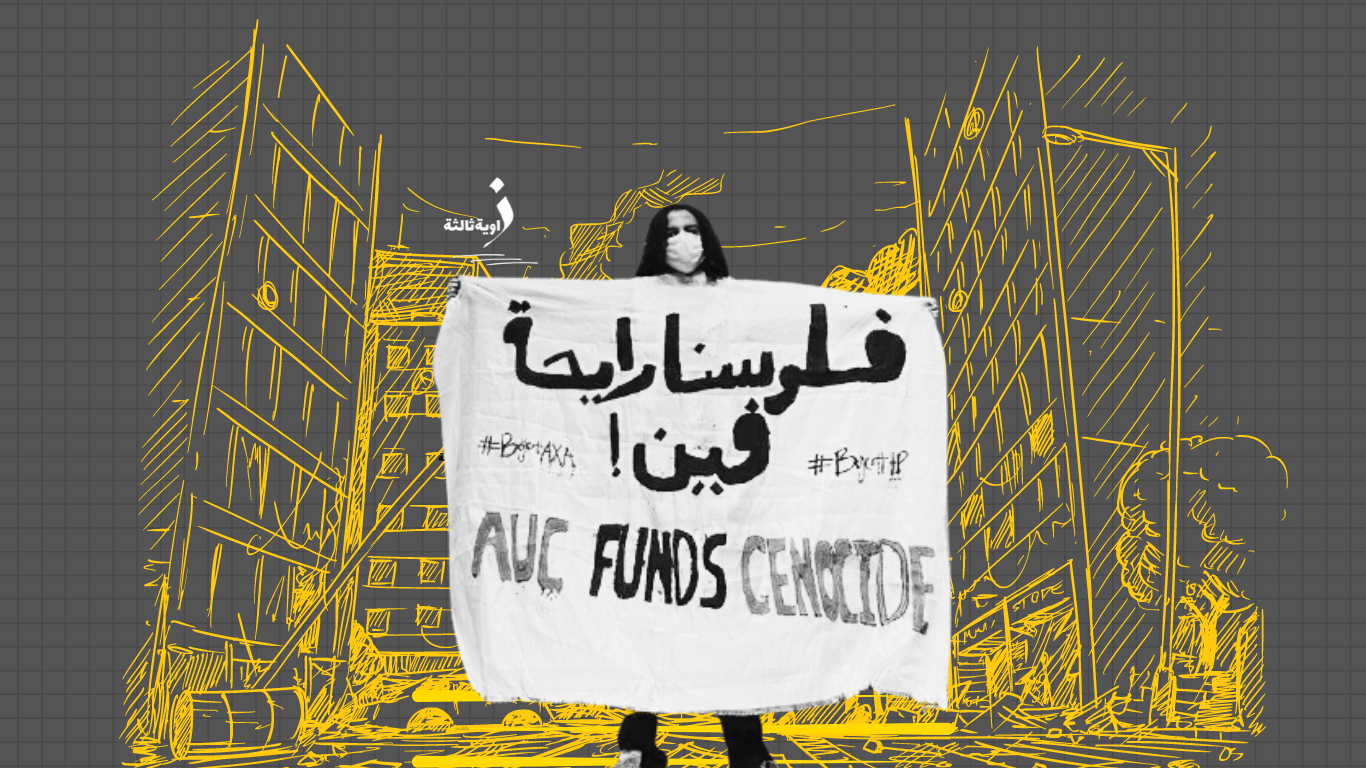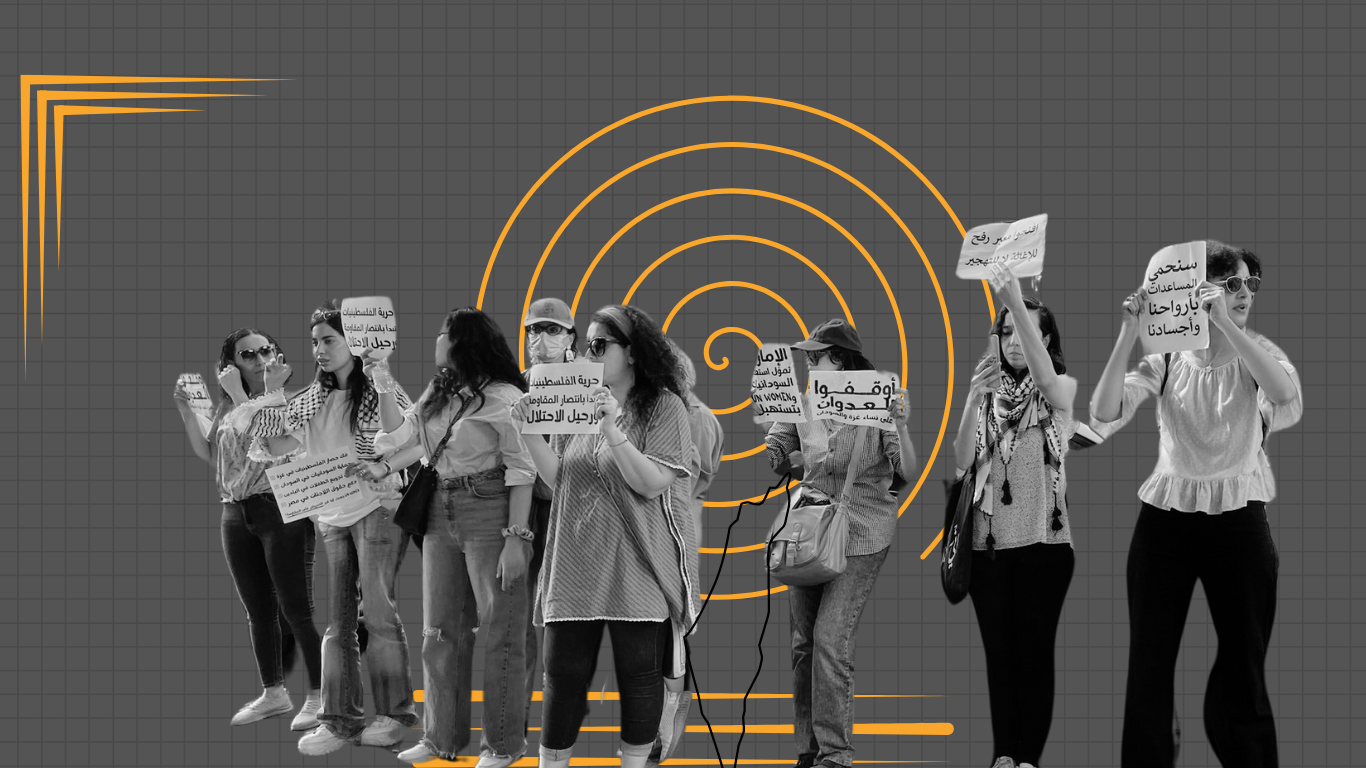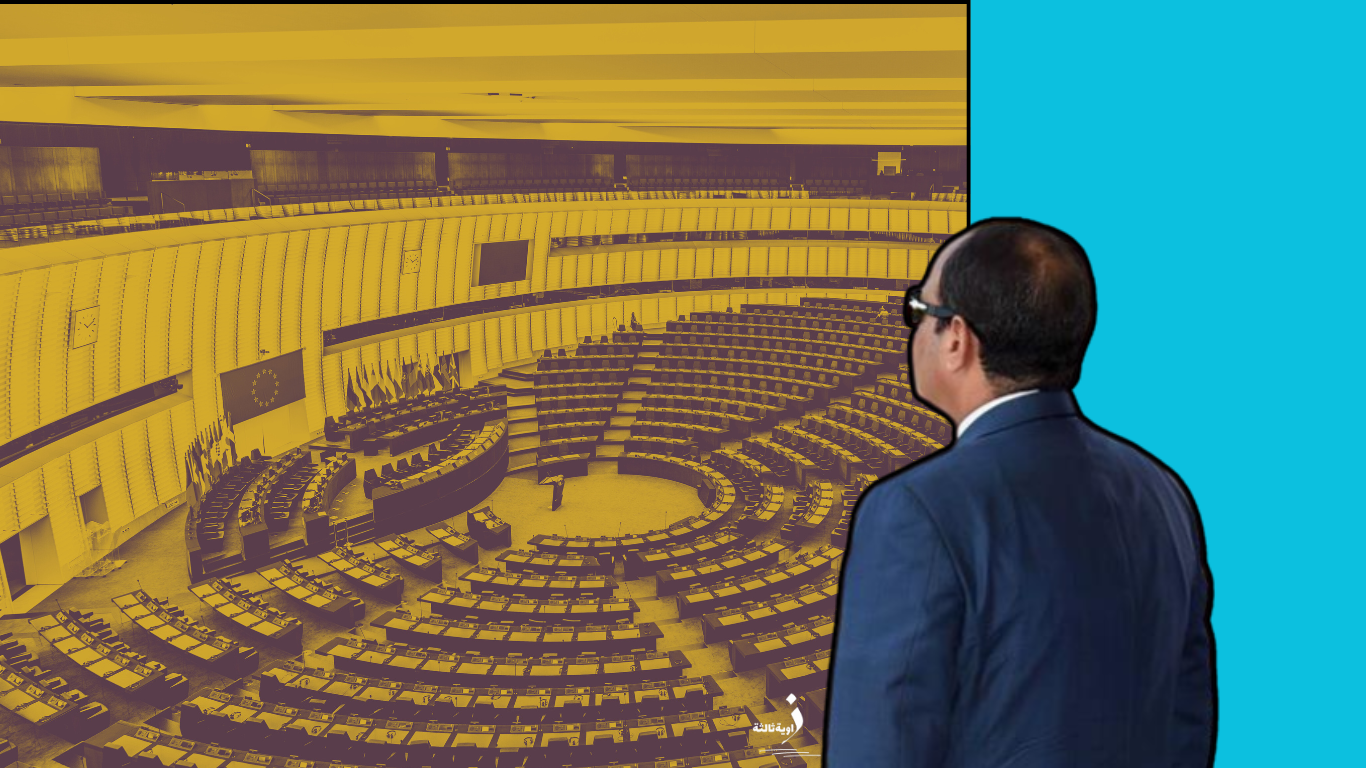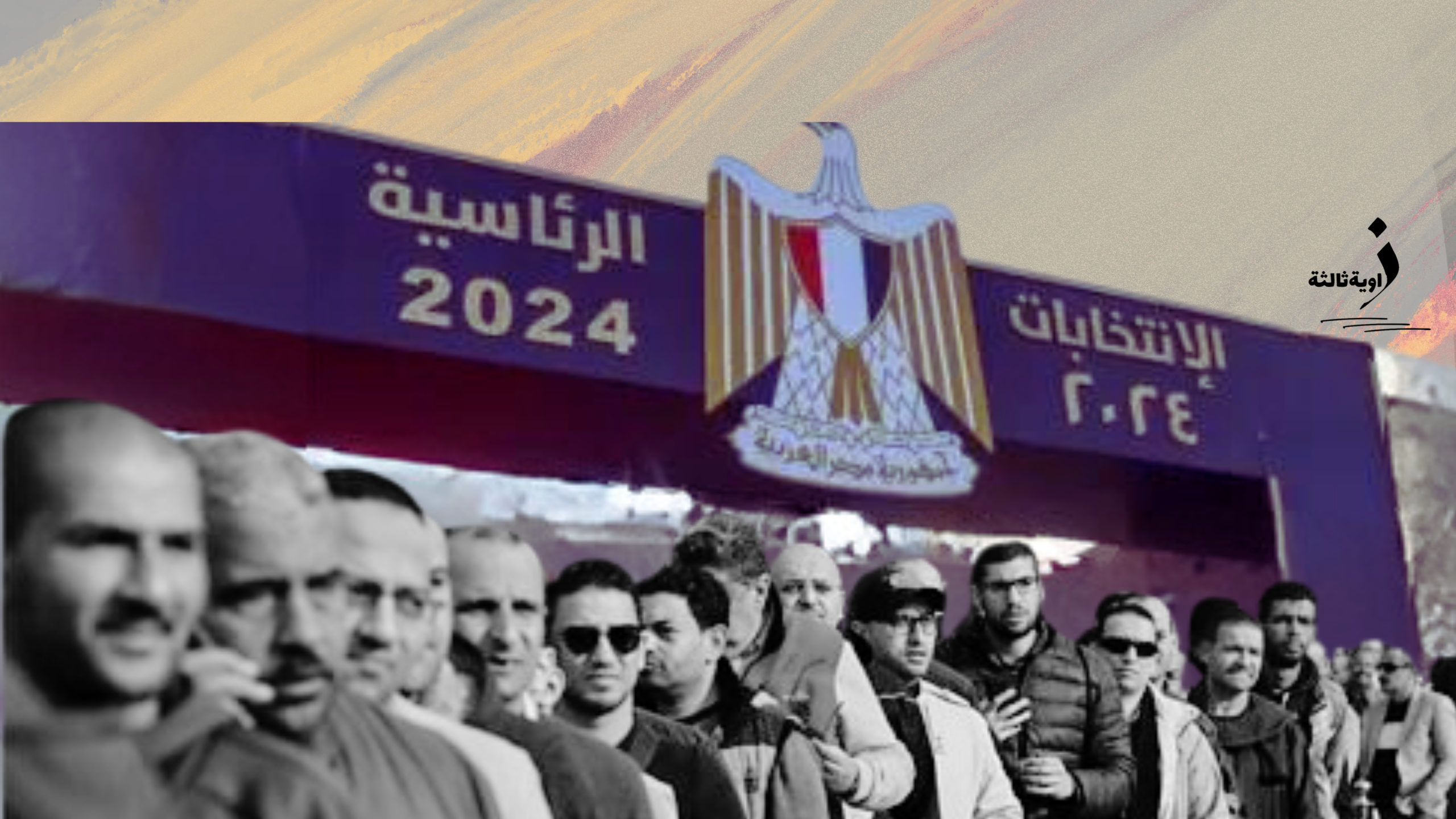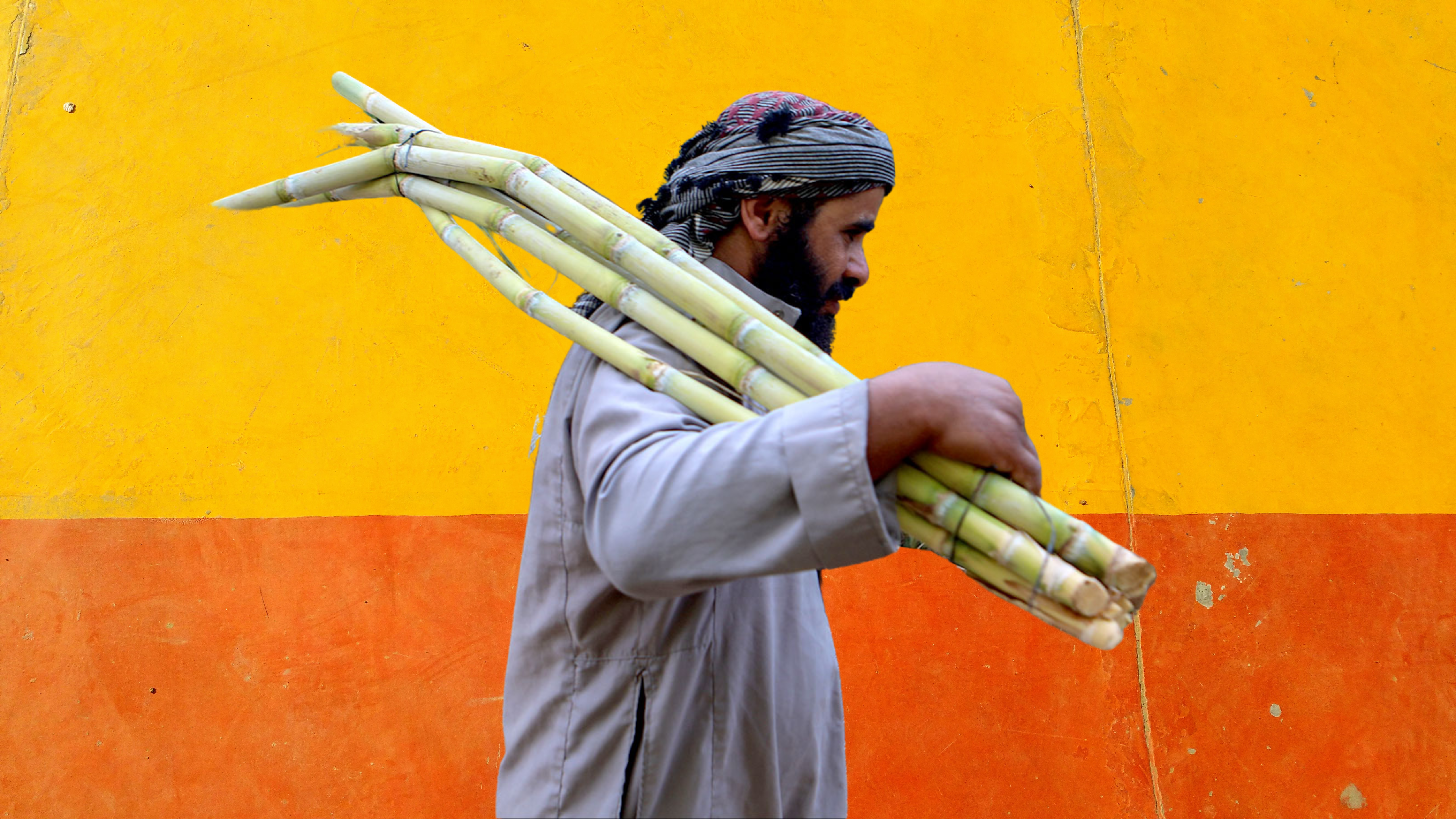Egyptian security forces have arrested nine workers following a recent strike by employees of the Egypt Spinning and Weaving Company in Mahalla al-Kubra. Some of them had participated in negotiations preceding the decision by Egyptian Minister of Public Enterprise Mahmoud Essmat to partially meet their demands.
A number of workers at the spinning and weaving company in Mahalla announced their strike on February 22nd, demanding an increase in the minimum wage and not to be exempted from Egyptian President Abdel Fattah el-Sisi’s decision to raise the minimum wage for state employees to six thousand pounds. They argued that the Mahalla Spinning Company falls under the public enterprise sector, not covered by the general budget, and thus follows the National Wages Council, which only raised the minimum to 3500 pounds.
The strike by Mahalla Spinning Company workers is part of a wave of labor strikes Egypt has witnessed since the beginning of the current year. Workers in several factories and companies have gone on strike, with the common demand being wages. This wave comes amidst an economic crisis in Egypt, evident in the unprecedented rise in prices and the depreciation of the Egyptian pound against the dollar.
Mahalla Spinning Company… Extended Labor Strikes
Egypt Spinning and Weaving Company comprises several factories for spinning, weaving, medical cotton, and a power station, employing around 16,000 workers. On February 22nd, workers struck for a week after realizing that the Egyptian President’s decision to raise the minimum wage was not being implemented for them, under the pretext that the company belongs to the public enterprise sector. The strike began with the workers of the clothing factory, numbering 3700 female workers, and then expanded to include male and female workers, forcing the management to negotiate with the workers and partially meet their demands. Minister of Public Enterprise issued decision number (16) for the year 2024 to equalize workers in public enterprise sector companies with those in government agencies and local administrations, applying the decision to increase the minimum wage for them and not exempting them. This prompted the workers to end their strike on February 28th.
On the following day after the strike was dispersed, security forces apprehended several workers who participated in the strike. They were detained without disclosing their whereabouts for several days until four workers appeared before the Supreme State Security Prosecution, which ordered their detention for 15 days pending investigations in case number 717 of 2024. They were charged with joining a group established against the law and spreading rumors, false news, and statements. Additionally, the company’s management issued warnings of dismissal to two of them, claiming their absence from work for more than ten days, which the Independent Trade Union Services Authority (a non-governmental organization concerned with labor affairs) considered as punishment for their participation in the strike.
In the same context, political, labor, and human rights forces demanded the immediate release of the four detained Mahalla workers, revealing the fate of the missing individuals, and cessation of the policy of dismissing workers. They pointed out that the government’s reward to workers before Ramadan was imprisonment on one hand and the flotation of the pound on the other.
These forces launched a petition on Saturday, March 9th, with signatures from parties, institutions, and more than 80 public figures under the title “Release Mahalla Workers, Release Breadwinners.” They considered that the Mahalla workers did not commit a crime by exercising their constitutional right to strike as stipulated in the international documents signed by Egypt.
Furthermore, these forces considered that the primary instigator of this strike is the government’s own policies, which have caused an increase in the inflation rate, unprecedented waves of price hikes, and currency collapse following repeated devaluations of the pound. Therefore, the strike was not due to calls from political groups or instigation from labor leaders. It was a spontaneous “uprising” that emerged from among the Mahalla textile workers.
Low Wages and a Wave of Workers’ Strikes
The wave of workers’ strikes began at the start of the current year. On January 29th last year, workers at the Turkish clothing company “T&C Garment” in the city of Obour in Qalyubia Governorate announced their strike to demand wage increases, regular increases in the annual allowance, and the regularization of temporary employment.
In response, the company management closed the doors on the workers and threatened to dismiss labor leaders if the strike was not ended, and to accept their promises of partial wage increases.
|
The number of employees in the company is estimated at about seven thousand workers. The maximum salary limit did not exceed 4000 pounds, and the vast majority of them receive 2500 pounds, which is less than the minimum wage approved by the Egyptian government for private sector workers, set at 3500 pounds. |
On February 29, 2024, workers and employees of the Alexandria Construction Company, a subsidiary of the “Talaat Moustafa Group,” owned by Hisham Talaat Moustafa, announced a protest against their low wages and the dismissal of their colleagues. Despite Talaat Moustafa Group’s profits in 2023 reaching nearly 142 billion pounds, wages remained low, prompting workers to strike.
On February 26th, workers at the Oils and Detergents Company in Assiut went on strike to demand the implementation of a minimum wage of six thousand pounds per month for public sector workers, similar to those in the government. After two days, the workers decided to postpone the strike in response to the management’s request, which promised to meet their demands.
Workers at the Universal Electrical Appliances Production Company in the Second Industrial Zone in Sixth of October City announced their strike on February 14th in protest against the management’s failure to meet their demands, which include implementing the minimum wage of 3500 pounds and providing holiday bonuses equivalent to three months’ wages each year.
Last February, workers at the Five Stars Industrial Mills Company in Suez entered an open sit-in at the factory headquarters to demand adjustments to salaries commensurate with price increases, the creation of an internal company regulation outlining the rights and duties of employees, and the reinstatement of allowances that were canceled since “Gammal Mills” took over Five Stars Mills a few months ago.
The company management had pledged to meet their demands, prompting the workers to end the strike. However, the workers resumed and announced the management’s retreat from its previous commitments. The management announced no salary increases, allowances, or bonuses, and postponed the meeting with the company’s owner to agree on company regulations indefinitely, after the factory received an export order that was being prepared during the negotiations.
Last December 26th, about 400 workers affiliated with “Kheir Service” and working in the peacekeeping forces camps in Sheikh Zayed and Sharm El-Sheikh in Sinai went on strike in protest against “corruption, poor conditions, and low wages.”
Wage increase was the common demand among most recent labor protests, as was the security threats and intimidation that followed the workers. According to a labor source in an interview with Zawia3 – preferring not to mention his name – the national security threatens striking workers with security prosecution as punishment for striking, despite striking being a constitutional and legal right for workers.
Karam Abdel Halim, head of the Workers Union in the Suez Canal Authority Clubs, and Vice President of the Solidarity Federation of Labor Unions, believes that the current workers’ protests will escalate in the coming period, given the deterioration of the Egyptian currency against the dollar and the rise in prices.
In a statement to Zawia3, he pointed out that these protests may move beyond the labor sphere to the social sphere, especially since citizens have become unable to afford basic necessities (food and drink). Given the continuation of the current regime with the same political and economic policies.
The Vice President of the Solidarity Federation of Labor Unions added that a peaceful social movement capable of negotiating needs organization. However, the state opposes organizations and does not allow their existence, whether unions, parties, or student unions. Despite the security stick wielded by the authority against everyone, labor protests have resumed, heralding the return of social protests.
He added, “The authority does not want to change its security approach to dealing with workers, which is arresting workers after negotiations and agreeing to demands, as happened with the Mahalla workers who were arrested as a warning to other workers, to intimidate them from repeating the step of striking and protesting. This method will not be effective over time, especially in an economically incomprehensible direction.”
From Labor to Social
In 2008, coinciding with the rule of former President Hosni Mubarak, Egypt witnessed its largest labor strike, called for by workers under similar circumstances. Activists and politicians helped spread the call, turning the labor strike into a social protest witnessed in the city of Mahalla El Kubra. This scene was one of the most prominent stations that paved the way for the January revolution in 2011.
Regarding the possibility of the evolution of labor protests and the extent to which they could turn into a social movement, Hisham Fouad, a socialist journalist specializing in labor affairs, says, “Quantitatively, labor protests did not differ compared to the timeframe during the past year. However, there is a difference related to timing, meaning there is intense tension and suppressed anger against the backdrop of social conditions and low living standards. This gives these protests a greater political significance than their actual situation.”
He added that there is another difference regarding the nature of demands. The demand for a minimum wage has become a common demand among workers. Last year, demands varied between incentives or overdue entitlements for each company or factory. However, this year’s demand is unified: the minimum wage. This unifies the labor movement.
Fouad further stated that the gains of Mahalla workers are actually gains for all workers in the business sector. Having a unified demand unites the labor movement, marking a qualitative shift from previous years. The impact and inspiration of Mahalla workers’ protest extend to other sectors, necessitating such action that has achieved positive results.
He believes that there are factors that make a real opportunity for the transformation of labor strikes into a social resistance movement. One of these factors is the different statements made by the government compared to the previous year. This year, the government talks about achievements and economic breakthroughs, especially after the Renaissance Dam deal. But last year, the government spoke about debts, economic crises, and the necessity of endurance. Therefore, the withdrawal from talking about the crisis makes the marginalized classes, who cannot afford to live due to deteriorating living conditions, demand an improvement in their living conditions and wealth redistribution. The government’s propaganda encourages this.
Fouad considered that what kills the social movement is the security grip that monitors the public sphere and organizations. In 2006 and 2007, there was a democratic margin and spaces in independent media and satellite channels. There was also a political margin and political organizations that helped the social movement, resulting in independent unions and allowing workers to organize themselves.
He explained that repression means preventing citizens from organizing themselves to protest peacefully, such as demonstrating, sit-ins, and strikes. This opens the door to an uprising or broader popular explosion, as happened in 1977 (the Bread Uprising) with its political and social demands. Based on this, either there will be an organized peaceful path allowing negotiation or a broader popular uprising. This depends on how workers respond to repression and its impact on the movement, which will become clear in the coming months. It cannot be measured now, especially with the political siege imposed by the authorities for 10 years and the absence of independent union organizations. Even the existing ones are symbolic, as the absence of those organizations obscures the vision or anticipation of what will happen in the coming period.
|
Before 1977, there were labor disturbances and uprisings during 1975 and 1976. On January 17, 1977, the Egyptian Deputy Prime Minister for Financial and Economic Affairs, Dr. Abdel Moneim El-Kaisouni, announced in a statement to the People’s Assembly a set of economic decisions, including lifting subsidies on a range of essential goods. This led to a popular uprising on January 18 and 19, starting with several large labor gatherings. Concurrently, Egyptian universities witnessed protests, and then the protests spread among different segments of society to reach the streets. The protesters chanted against the regime and the economic decisions. This day was politically known as the “Bread Uprising,” while the regime referred to it as the “Thieves’ Uprising.” |
Workers in Sequential Crises
Mona Ezzat, a researcher in labor issues, agrees with the socialist journalist Hisham Fouad that this year’s labor protests are not much different from last year’s. She also agrees that workers’ demands are currently unified around the issue of wages. However, she sees that the labor movement often ends its strikes before achieving real victories. If a strike begins in a factory or company with a set of demands, it usually ends as soon as there is a promise to improve wages, which has been the approach taken by the labor movement for the past 20 years or so.
Ezzat added in her statement to Zawia3 that the labor movement lacks the presence of a union organization capable of formulating workers’ demands and working for a broader demand-driven movement capable of negotiating effectively. Union organization is the key to playing several roles in developing labor activism, as it works to educate workers and familiarize them with their demands and issues. This paves the way for social activism.
She believes that social activism will not arise from unions alone. This activism requires the mobilization of different groups of citizens, not just on wages, but also on taxes, insurance, and prices. For this to happen, favorable opportunities and objective conditions are necessary. Thus, the transition from labor protest to social protest requires larger steps.
|
In a report titled “Descending to the Bottom” issued by the Union Services House, the state of trade union freedoms for 2023 was discussed. It clarified that workers have been experiencing a wage crisis for decades, which is not calculated according to their needs, but rather according to the whims of the employer and the highest possible profit for them. The minimum wage, which has reached four thousand pounds, or about 80 dollars monthly (according to the unofficial exchange rate), applies only in the public sector, which represents less than one-third of the total workforce in Egypt. |
It is worth mentioning that the minimum wage is calculated inclusive of the social insurance contribution that the employer is supposed to pay, not the worker. As for the situation in the private sector, there is no shame in it, as workers are not allowed to establish unions to protect them, nor is the Ministry monitoring them. This creates an unjust situation that makes them poor, or at least threatened with hunger, as they work long hours without any returns to protect them from poverty.
To gauge the magnitude of the crisis experienced by workers, currency differentials, and inflation, we can refer to 2013 as a benchmark year. The minimum wage was 1200 pounds, equivalent to approximately 172 dollars, when the dollar was less than seven pounds. Therefore, the increase in the minimum wage promoted by the government now equals 80 dollars, which is not a real increase, but illusions exposed by inflation rates that have eroded incomes, according to the report.
The report concluded that in the absence of a program to promote labor relations and its institutions in Egypt entirely, and the obstacles placed in front of establishing independent unions, the intention is clear to eliminate independent labor voices and work to marginalize them, as part of a general context that the authority sees the public sphere as nothing but an unnecessary obstacle to establishing its rule. This is far from the ideas of negotiating rights or societal dialogue in general.
The Union Services House warned that continuing attempts to undermine union entities and ignoring the importance of principles such as collective bargaining, in achieving balanced, long-term relationships within workplaces, threatens social peace and the desired economic stability, and only achieves chaos.

